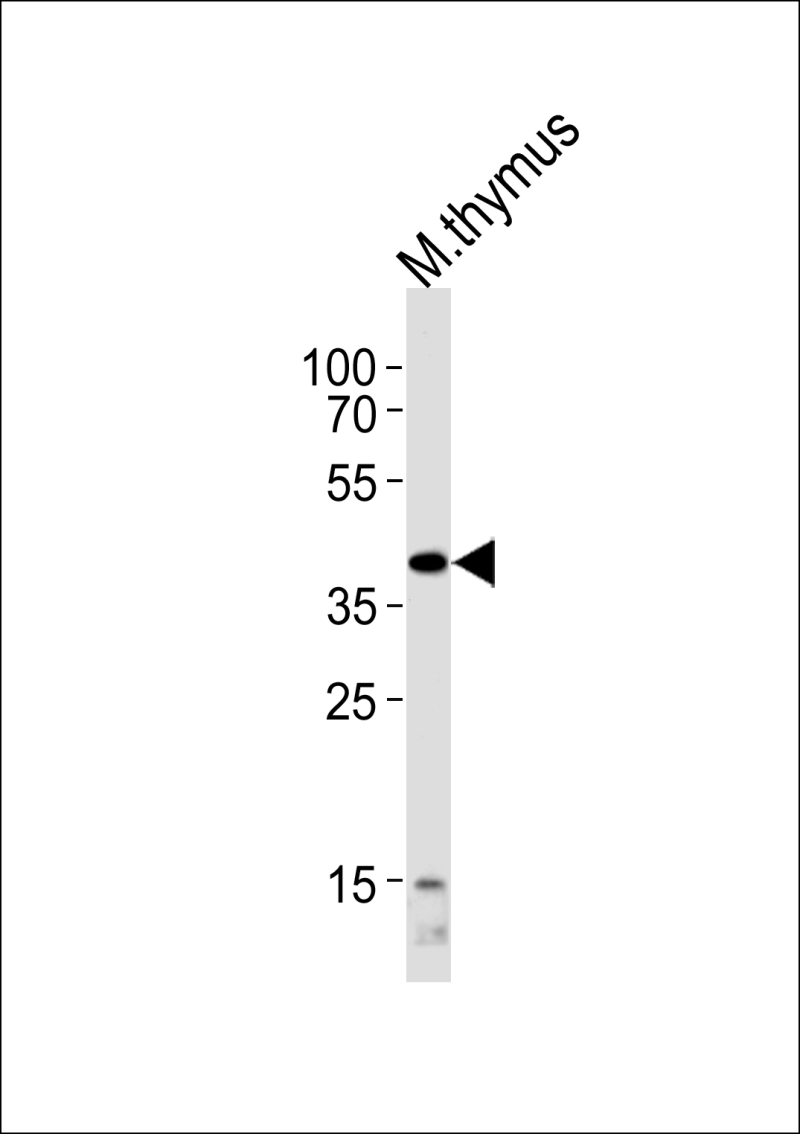
| WB | 1/1000 | Human,Mouse,Rat |
| IF | 咨询技术 | Human,Mouse,Rat |
| IHC | 咨询技术 | Human,Mouse,Rat |
| ICC | 技术咨询 | Human,Mouse,Rat |
| FCM | 咨询技术 | Human,Mouse,Rat |
| Elisa | 咨询技术 | Human,Mouse,Rat |
| Aliases | Transcription factor AP-2-alpha, AP2-alpha, AP-2 transcription factor, Activating enhancer-binding protein 2-alpha, Activator protein 2, AP-2, Tfap2a, Ap2tf, Tcfap2a |
| Entrez GeneID | 21418 |
| WB Predicted band size | 48.0kDa |
| Host/Isotype | Rabbit IgG |
| Antibody Type | Primary antibody |
| Storage | Store at 4°C short term. Aliquot and store at -20°C long term. Avoid freeze/thaw cycles. |
| Species Reactivity | Human, Mouse, Rat |
| Immunogen | This mouse Tfap2a antibody is generated from a rabbit immunized with a KLH conjugated synthetic peptide between 134-166 amino acids from the Central region of mouse Tfap2a. |
+ +
以下是3篇涉及Mouse Tfap2a抗体的参考文献及其摘要要点:
---
1. **文献名称**:*Tfap2a regulates specification and maturation of a subpopulation of neural crest-derived mandibular mesenchyme*
**作者**:Brewer, S., Feng, W., & Williams, T.
**摘要**:研究利用Tfap2a抗体(兔多克隆)进行免疫组化,发现Tfap2a在小鼠胚胎下颌间充质细胞分化中起关键作用,并揭示其通过调控Bmp信号通路影响颅面发育。
---
2. **文献名称**:*Transcription factor AP-2α is essential for cranial neural crest cell survival*
**作者**:Schorle, H., Meier, P., & Mitchell, P. J.
**摘要**:通过Tfap2a抗体(小鼠单克隆)进行免疫荧光和Western blot分析,证实Tfap2a缺失导致小鼠神经嵴细胞凋亡增加,揭示其在胚胎早期神经嵴存活中的必要性。
---
3. **文献名称**:*Tfap2a-dependent ectodermal signals regulate craniofacial morphogenesis*
**作者**:Zhang, J., Hagopian-Donaldson, S., & Williams, T.
**摘要**:结合Tfap2a抗体(兔源)的免疫染色及基因敲除模型,证明Tfap2a通过调控外胚层信号(如Fgf8)协调小鼠颜面部组织模式形成。
---
**备注**:以上文献均在小鼠模型中使用Tfap2a抗体进行蛋白定位或功能验证,适用于发育生物学及转录因子相关研究参考。具体抗体信息建议查阅文献方法部分或补充材料。
**Background of Mouse Tfap2a Antibody**
The transcription factor AP-2 alpha (Tfap2a) is a member of the AP-2 family of DNA-binding proteins, which play critical roles in embryonic development, cell differentiation, and tissue homeostasis. In mice, Tfap2a is encoded by the *Tfap2a* gene and is essential for regulating gene expression during morphogenesis, particularly in neural crest cells, epidermal tissues, and craniofacial structures. It binds to specific DNA sequences to activate or repress target genes involved in apoptosis, proliferation, and cell-cell signaling.
Mouse Tfap2a antibodies are immunological tools designed to detect and study the expression, localization, and function of the Tfap2a protein in murine models. These antibodies are widely used in techniques such as Western blotting, immunohistochemistry (IHC), immunofluorescence (IF), and chromatin immunoprecipitation (ChIP) to investigate Tfap2a's role in developmental biology, cancer (e.g., its dual role as a tumor suppressor or promoter in certain contexts), and congenital disorders.
Validated for specificity, many commercial Tfap2a antibodies are generated using immunogens derived from conserved regions of the mouse protein, ensuring reactivity across mouse tissues. They are crucial for elucidating mechanisms underlying conditions like cleft lip/palate or neural tube defects linked to *Tfap2a* mutations. Proper controls, such as knockout validation, are recommended to confirm antibody reliability in experimental settings.
×